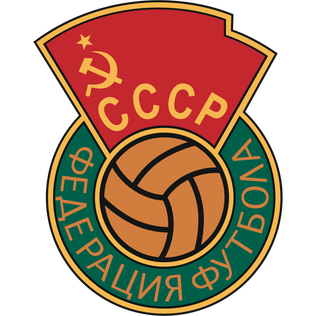
Robert Marvin Hull was a Canadian professional ice hockey player who is widely regarded as one of the greatest players of all time. His blonde hair, skating speed, end-to-end rushes, and ability to shoot the puck at very high velocity all earned him the name "The Golden Jet". His talents were such that an opposing player was often assigned just to shadow him.

The Art Ross Trophy is awarded to the National Hockey League (NHL) player who leads the league in points at the end of the regular season. It was presented to the league by former player, General Manager, and head coach Art Ross. The trophy has been awarded 70 times to 29 players since its introduction in the 1947–48 NHL season. Ross is also known for his design of the official NHL puck, with slightly bevelled edges for better control.

Stanley Mikita was a Slovak-born Canadian ice hockey player for the Chicago Black Hawks of the National Hockey League, generally regarded as the best centre of the 1960s. In 2017, he was named one of the 100 Greatest NHL Players. In 1961, he became the first Slovak-born player to win the Stanley Cup.
Slovene Canadians are Canadian citizens of Slovene descent or Slovenian-born people who reside in Canada.

The Football Federation of the USSR was a governing body of football in the Soviet Union and since 1972 the main governing body of football in the country. The Federation was created in late 1934 by the decision of the Supreme Council of Physical Culture of the USSR as its sports section governing specifically football. It was the only organization that obtained recognition of FIFA in 1946.
Nigerian Canadians are Canadian citizens and residents of Nigerian origin and descent. Nigerians began migrating to Canada during the 1967–1970 Nigerian Civil War. Nigerians were not broken out separately in immigration statistics until 1973. 3,919 landed immigrants of Nigerian nationality arrived in Canada from 1973 to 1991.
Rumun Ndur is a Nigerian-born Canadian former professional ice hockey player. Ndur played in the National Hockey League (NHL) for the Buffalo Sabres, the New York Rangers, and the Atlanta Thrashers. Ndur was the first Nigerian-born player to play in the NHL. He was born in Nigeria but grew up in Hearst, Ontario.

Ivan Boldirev is a Serbian Canadian former professional ice hockey player. Boldirev played fifteen seasons and over 1000 games in the NHL from 1970 through 1985. He featured in the 1982 Stanley Cup Finals with the Vancouver Canucks. Boldirev was noted during his career as one of the sport's best stickhandlers.

Darcy Irwin Rota is a Canadian former professional ice hockey player who spent eleven seasons in the National Hockey League. He featured in the 1982 Stanley Cup Finals with the Vancouver Canucks.
Joseph Charles Jerwa was a Polish-born Canadian professional ice hockey defenseman who played 8 seasons in the National Hockey League for the New York Rangers, Boston Bruins and New York Americans between 1930 and 1939. He was the first Polish-born player in NHL history.

Belarusian nationality law regulates the manner in which one acquires, or is eligible to acquire, Belarusian nationality, citizenship. Belarusian citizenship is membership in the political community of the Republic of Belarus.
John Smrke is a Canadian-born American former professional ice hockey player who played 103 games in the National Hockey League with the St. Louis Blues and Quebec Nordiques between 1977 and 1980.

The Russian Soviet Federative Socialist Republic, previously known as the Russian Soviet Republic, and the Russian Socialist Federative Soviet Republic, as well as being unofficially referred to as Soviet Russia, the Russian Federation, or simply Russia, was an independent federal socialist state from 1917 to 1922, and afterwards the largest and most populous Soviet socialist republic of the Soviet Union (USSR) from 1922 to 1991, until becoming a sovereign part of the Soviet Union with priority of Russian laws over Union-level legislation in 1990 and 1991, the last two years of the existence of the USSR. The Russian SFSR was composed of sixteen smaller constituent units of autonomous republics, five autonomous oblasts, ten autonomous okrugs, six krais and forty oblasts. Russians formed the largest ethnic group. The capital of the Russian SFSR and the USSR as a whole was Moscow and the other major urban centers included Leningrad, Stalingrad, Novosibirsk, Sverdlovsk, Gorky and Kuybyshev. It was the first Marxist-Leninist state in the world.
Konstantin Vitalievich Shafranov is a Kazakhstani former professional ice hockey player who played five games in the National Hockey League. He played for the St. Louis Blues. In 1996, he won the Gary F. Longman Memorial Trophy as the best rookie in the International Hockey League (IHL). Two years later he was named to the IHL's end of season all-star team, as the second best right-wing in the league.

The CIS national ice hockey team was an ephemeral national ice hockey team that represented the Commonwealth of Independent States. Essentially the former Soviet team under a different name, the CIS team existed in the few months between the dissolution of the Soviet Union and the formation of new ice hockey federations for the former Soviet states, now independent countries. Most notably, the team competed at the 1992 Winter Olympics as part of the Unified Team, winning the gold medal. However, the International Ice Hockey Federation would later attribute this gold medal to Russia as the successor state. The International Olympic Committee does not attribute that medal to Russia. After the Olympics, the CIS team ceased to exist and was replaced by the Russian team. In the 13 games the CIS played, they won 11 and lost 2.
Soviet nationality and citizenship law controlled who was considered a citizen of the Union of Soviet Socialist Republics, and by extension, each of the Republics of the Soviet Union, during that country's existence. The nationality laws were only in rough form from about 1913 to 1923, taking more definite form in 1924. There were several major changes in the nationality law, especially in 1931, 1938, and 1978. Soviet law originally expanded the bounds of jus sanguinis and citizenship by residence more than was common among European countries, before tending to gradually retract from that over time. Soviet citizenship law was also used as a political tool to expand the number of Soviet citizens globally, increase military conscription pools, and punish dissenters or even entire ethnic groups.

The Haiti national ice hockey team is the national men's ice hockey team of Haiti. Made up exclusively of Haitians living in Canada, the Haitian team is an unofficial national team outside the IIHF and has so far played in only one international game.









